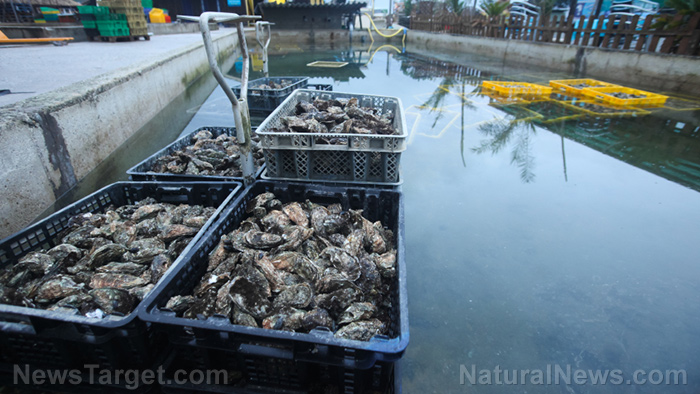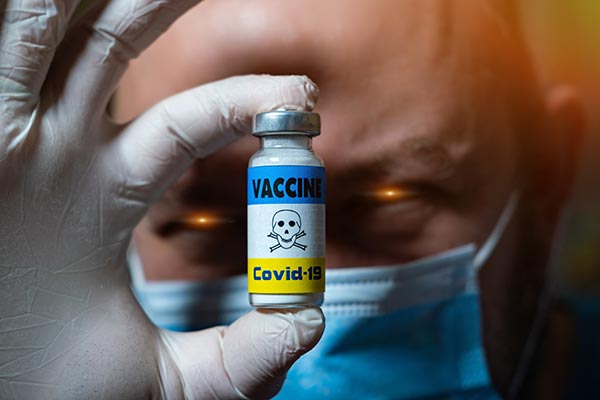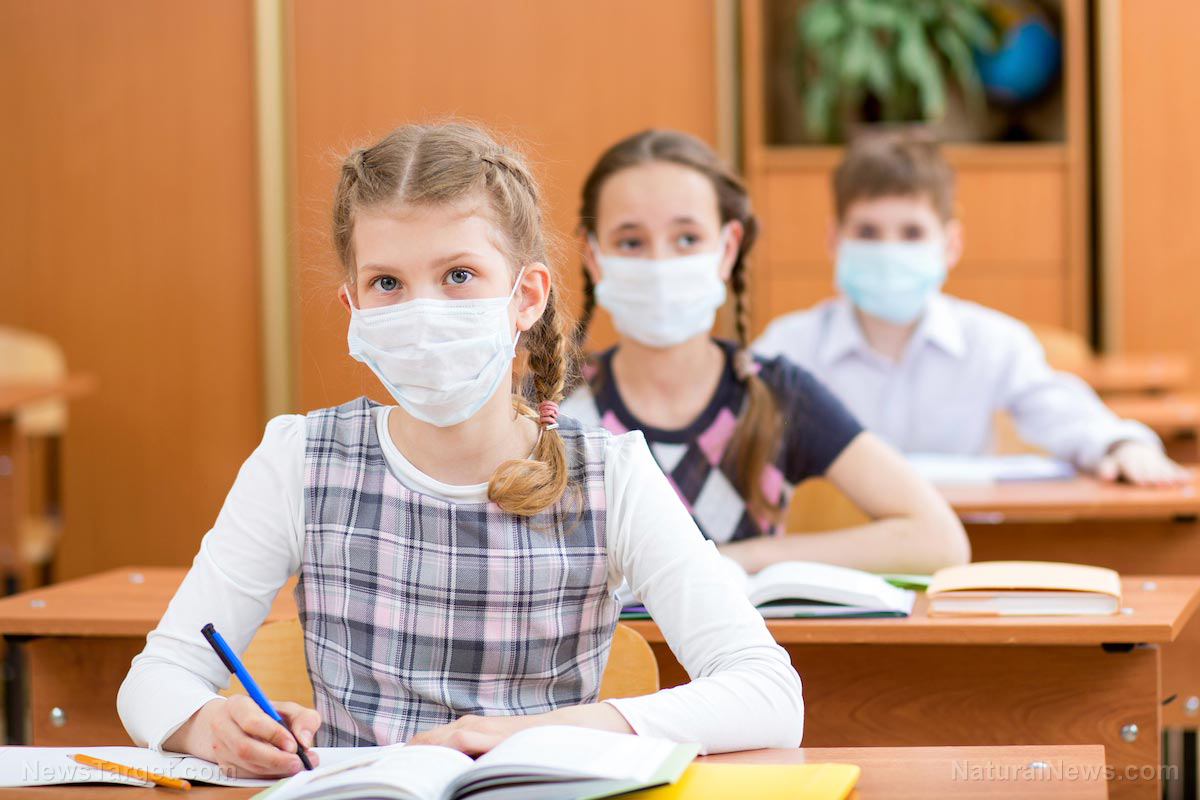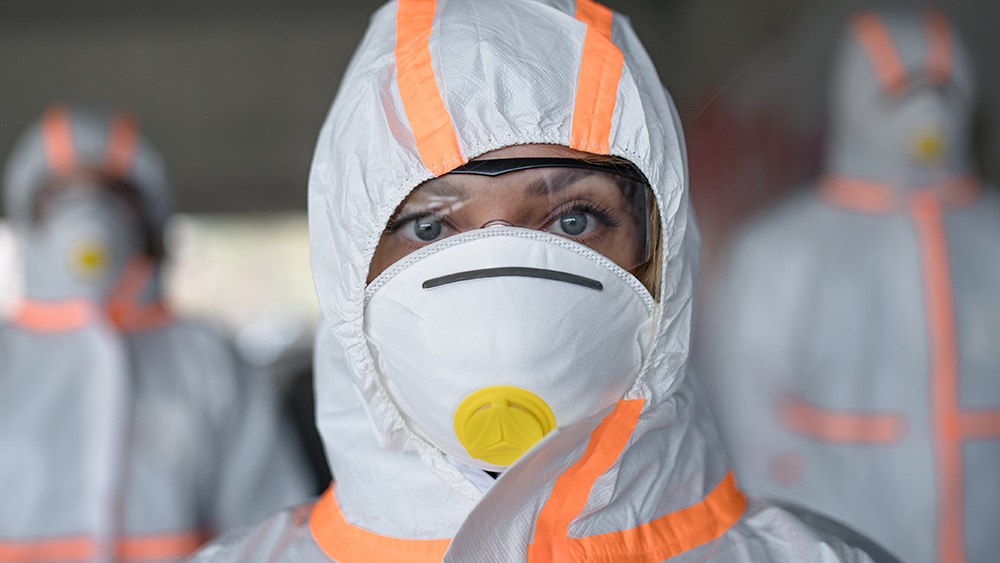FDA recalls frozen oysters in 13 states over fears of sapovirus contamination
11/29/2022 / By Belle Carter

The Food and Drug Administration (FDA) has ordered an emergency recall of frozen oysters over fears of sapovirus contamination after one person who ate raw oysters in Las Vegas came down with vomiting and diarrhea and tested positive for the common cause of viral gastroenteritis. Nine others are suspected to be infected.
According to Southern Nevada Health District, there were two clusters of illnesses from a restaurant in Las Vegas. The oysters were harvested back in February 6, imported from South Korea’s Dai One Food Company and served on October 28 and November 5.
“The Korean firm has recalled frozen half shell oysters, frozen oyster IQF (individually quick freezing) and frozen oyster block harvested from the same harvest area on the same day as the possible contaminated batch,” FDA officials said.
The federal agency warned that sapovirus infection symptoms manifest within 48 hours after ingestion. The infection is rarely fatal, with symptoms clearing up in one to four days.
“Consumers, especially those who are or could become pregnant, the elderly and persons with weakened immune systems, who have recently consumed raw oysters in (13 states) and suspect they have food poisoning should seek medical care immediately,” FDA officials said.
The affected states are Nevada, Alabama, California, Florida, Georgia, Maryland, New York, New Jersey, North Carolina, Pennsylvania, South Carolina, Tennessee and Virginia.
Sapoviruses can cause diarrhea, vomiting, nausea, stomach pain, fever, headache and body aches. These infections are more common in children under the age of five, where it is spread via the fecal-oral route, though the infections can affect anyone.

Health practitioners recommend taking hand and food hygiene measures to avoid catching the disease.
Eating raw oysters increases risk of catching foodborne illnesses
A food poisoning expert warned diners to avoid “slurping” oysters from the shell as foodborne illnesses linked to raw shellfish have been on the rise over the past 10 years. (Related: Oyster recall: Salmonella contamination forces Canadian company to recall oysters.)
Food safety lawyer Bill Marler said uncooked seafood is “not worth the risk” nowadays.
Earlier this year, hundreds of Americans and Canadians were reported to be infected with norovirus, a common culprit in food poisoning cases, after eating raw oysters harvested in British Columbia.
Moreover, the Centers for Disease Control and Prevention (CDC) noted that a type of bacteria called vibrio affects about 80,000 people in the U.S. each year.
Oysters are known to absorb the bacteria in the coastal waters where they feed, especially during the summer months. As ocean waters warm, more viruses and bacteria can thrive, leading to a greater risk of contamination.
“They’re absorbing viruses and pathogens into their meat,” Marler said. “It’s a process that helps clean the water, but doesn’t help the consumer of raw shellfish.”
Vibrio occurs naturally in and around shellfish beds where the water is warm. While other germs, such as norovirus and hepatitis A virus, possibly end up in the water along with sewage materials. They are known to spread via the fecal-oral route which poses a greater risk if sewage is untreated.
Of course, plastic pollution contributes to enabling certain viruses to thrive longer in water. According to studies, viruses similar to norovirus can stay infectious for up to three days on a tiny piece of plastic, although the strongest evidence has come from experiments in freshwater.
Marler added that cooking shellfish to an internal temperature of 194 degrees Fahrenheit (90 degrees Celsius) for a minimum of 90 seconds will kill any viruses and bacteria inside. The CDC, meanwhile, recommends boiling shellfish until the shells open and for an additional three to five minutes. It is better to throw away shellfish that did not open during cooking.
Watch the video below that talks about how fast oysters can process microplastics.
This video is from the Finding Genius Podcast channel on Brighteon.com.
More related stories:
Oyster farmers battle for survival in Yorktown.
Oysters found to help restore balance to aquatic ecosystems by removing pollution.
Community in Virginia seeks water pollution resolution from mega meat producer Tyson foods.
Clorox recalls Pine-Sol products due to bacterial contamination.
Sources include:
Submit a correction >>
Tagged Under:
clean food watch, clean waters, diarrhea, emergency recall, FDA, food contamination, food poisoning, food safety, food supply, foodborne illness, grocery, infections, norovirus, oyster, products, sapovirus, shellfish, stop eating poison, vomitting
This article may contain statements that reflect the opinion of the author





















